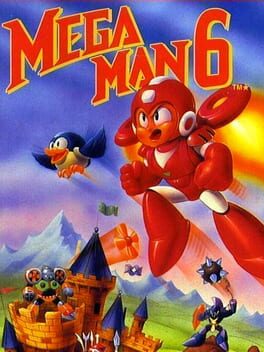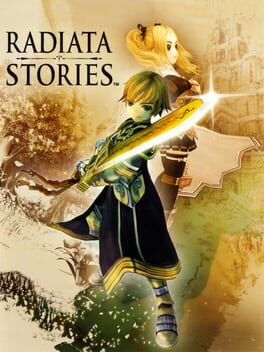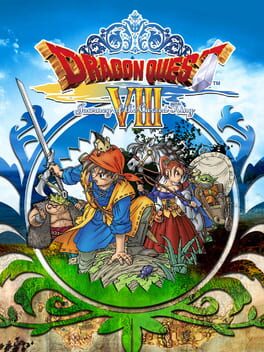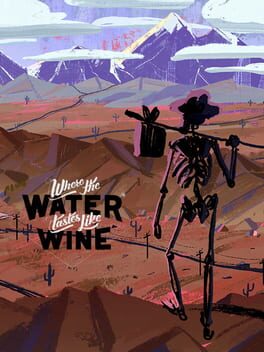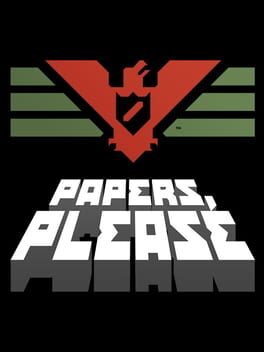ItalianRobo
Bio
Nothing here!
Badges

1 Years of Service
Being part of the Backloggd community for 1 year

Liked
Gained 10+ total review likes
Favorite Games
000
Total Games Played
000
Played in 2024
000
Games Backloggd
Recently Reviewed See More
This review contains spoilers
This game really is something special; it fully deserves its reputation.
The storytelling is great on so many different levels. This is some of the greatest political storytelling I've ever seen, let alone within the medium of video games. In a forgotten slum where power is constantly contested between groups, regardless of who may hold "governmental legitimacy" to exercise that power, playing as a police officer lacking that power and caught between the groups who hold power and are vying for more of it is such a unique and dynamic way to explore the politics of martinaise. The fact that the RCM can’t even agree which precinct martinaise belongs to is just the cherry on top of the fully realized political instability.
Add to that the great characters you find in the city (Kim, Titus, Klassje, Joyce though she doesn’t have an arc, she’s still just fascinating to talk to), and it's impressive how well the character arcs and political narratives are balanced, when so much other fiction has failed that balance. Also, the pacing and climaxes are fantastic. Your confrontation with Ruby, and the tribunal with the mercenaries are thrilling, and each move you make feels extremely consequential. This contrasts with the confrontation you and Kim have with the deserter, where the conversation feels slow, draining, and as worn down as the deserter himself is.
But the thing that really put this over the edge as an all timer for me is the nature of the world you’re in. In a game where you were most likely figuring that the world is just a heavily fictionalized version of the real world with fictional place names, the conversation with Joyce where you finally learn what an Isola is, and she slowly reveals to you the nature of the pale is deeply sobering. The chain link between the silly missions of the haunted commercial district and the dance club giving way to you interacting and discovering things about an emergence of the pale only serves to strengthen this aspect of the story.
Finally, there is the arc of Harry Du Bois himself. While I was initially turned off by how your skills were constantly talking to you (They’re too verbose, to be sure. Plus, I really have to be in the right mood to not want to skip through the ancient reptilian brain-limbic system dialogues). Finding your binder and learning of your past glory as a cop was so nice to hear after constantly being told of your drunken escapades and failures. Still though, you must repeatedly contend with your failures throughout the story, but the opportunities you get to improve outside of the main story do much to alay those feelings of failure (informing the working class woman that her husband has died is a personal favorite). All of this, plus the hauntological elements of the pale and the political history of Insulinde, culminates perfectly in the dream Harry has on the island. Reliving that final conversation with Harry’s ex, as Dolores Dei, is tragic. It disorients the player wonderfully, and it breaks your heart as you try out each dialogue option trying for something that might satisfy Harry. Again, this conversation is the perfect culmination of so many of the themes introduced throughout the game.
An aspect that I especially like about Disco Elysium, is how much the storytelling is elevated by the medium. As a linear novel, so much would be lost. Going down trivial side paths that either end up resulting in a moment of heavy emotional resonance or having dramatic implications for the story at large is rewarding. While I won’t have the full effect of this until I make a second playthrough, it truly felt like the characters, the world, and even the game was truly responding to how you decided to play, and how you made Harry act. This is a masterpiece that truly feels like its unique to videogames (or I guess a tabletop rpg game, since that’s what it is)
The storytelling is great on so many different levels. This is some of the greatest political storytelling I've ever seen, let alone within the medium of video games. In a forgotten slum where power is constantly contested between groups, regardless of who may hold "governmental legitimacy" to exercise that power, playing as a police officer lacking that power and caught between the groups who hold power and are vying for more of it is such a unique and dynamic way to explore the politics of martinaise. The fact that the RCM can’t even agree which precinct martinaise belongs to is just the cherry on top of the fully realized political instability.
Add to that the great characters you find in the city (Kim, Titus, Klassje, Joyce though she doesn’t have an arc, she’s still just fascinating to talk to), and it's impressive how well the character arcs and political narratives are balanced, when so much other fiction has failed that balance. Also, the pacing and climaxes are fantastic. Your confrontation with Ruby, and the tribunal with the mercenaries are thrilling, and each move you make feels extremely consequential. This contrasts with the confrontation you and Kim have with the deserter, where the conversation feels slow, draining, and as worn down as the deserter himself is.
But the thing that really put this over the edge as an all timer for me is the nature of the world you’re in. In a game where you were most likely figuring that the world is just a heavily fictionalized version of the real world with fictional place names, the conversation with Joyce where you finally learn what an Isola is, and she slowly reveals to you the nature of the pale is deeply sobering. The chain link between the silly missions of the haunted commercial district and the dance club giving way to you interacting and discovering things about an emergence of the pale only serves to strengthen this aspect of the story.
Finally, there is the arc of Harry Du Bois himself. While I was initially turned off by how your skills were constantly talking to you (They’re too verbose, to be sure. Plus, I really have to be in the right mood to not want to skip through the ancient reptilian brain-limbic system dialogues). Finding your binder and learning of your past glory as a cop was so nice to hear after constantly being told of your drunken escapades and failures. Still though, you must repeatedly contend with your failures throughout the story, but the opportunities you get to improve outside of the main story do much to alay those feelings of failure (informing the working class woman that her husband has died is a personal favorite). All of this, plus the hauntological elements of the pale and the political history of Insulinde, culminates perfectly in the dream Harry has on the island. Reliving that final conversation with Harry’s ex, as Dolores Dei, is tragic. It disorients the player wonderfully, and it breaks your heart as you try out each dialogue option trying for something that might satisfy Harry. Again, this conversation is the perfect culmination of so many of the themes introduced throughout the game.
An aspect that I especially like about Disco Elysium, is how much the storytelling is elevated by the medium. As a linear novel, so much would be lost. Going down trivial side paths that either end up resulting in a moment of heavy emotional resonance or having dramatic implications for the story at large is rewarding. While I won’t have the full effect of this until I make a second playthrough, it truly felt like the characters, the world, and even the game was truly responding to how you decided to play, and how you made Harry act. This is a masterpiece that truly feels like its unique to videogames (or I guess a tabletop rpg game, since that’s what it is)
I didn't finish this game. I started playing it like four weeks ago, played it all throughout a weekend, and haven't touched it since until I played a short while today. I can't imagine actually finishing this game.
I'll start by saying I really like the stories from the road. It's a nice varied collection of vignettes. Sometimes realistic, sometimes supernatural. Sometimes a microcosm of a longer narrative, sometimes just a happening you've seen on the road. The best of these stories can really sit with you. Also, I really like the mechanic of stories growing to be tall tales; it just jives with the actual phenomenon it's trying to show.
But, the game between those stories just isn't good. The character stories should be the anchor of this game; it's the thing that should be bringing you back until you traveled the whole country. But, for the most part, the character stories aren't really even stories; there's no development as you progress, instead you just learn more about the character. The first person you'll meet in this game is Quinn and, from what I've seen, that's the highlight of these stories. You get a sense of him growing more cynical between the chapters as people screw him over, and it's heartbreaking to see this kid's portrait transform into a grizzled wolf in the final chapter. Knowing that the final chapter for these stories features a new portrait got me excited to at least see what the art change is, even if I'm not particularly interested in the character. And then I got to Mason, and the final chapter portrait was just the lamest, most hack portrayal of PTSD I've ever seen. The character stories vary in quality, but at their worst, the characters are just overly broad depictions of a type of person in 20th century America (PTSD veteran, socialist coal miner, black porter, etc) that lack any characterization outside of their stereotype. It's offering depth to a stereotype, but not an actual character.
Also, the actual experience of playing the game just isn't fun. Traveling sucks no matter how you do it, and reorganizing your story inventory to try to maximize your effect on a character is just so lame a process. I think the biggest flaw in this game is that it's scope is just too big. Obviously traversing the entire country is a ridiculous ask, but I also think that there are just too many road stories. Like when you pass by Columbus, OH and there are three different stories popping up, you just have to rush through them. There's no time for the those stories (the best part of the game) to actually marinate, and soon you're looking at the story menu and trying to remember what the hell happened at the Creepy Sawmill in Cleveland.
The little vignette road stories are the best thing this game has going for it, and the game around it does a disservice to those stories, unfortunately.
I'll start by saying I really like the stories from the road. It's a nice varied collection of vignettes. Sometimes realistic, sometimes supernatural. Sometimes a microcosm of a longer narrative, sometimes just a happening you've seen on the road. The best of these stories can really sit with you. Also, I really like the mechanic of stories growing to be tall tales; it just jives with the actual phenomenon it's trying to show.
But, the game between those stories just isn't good. The character stories should be the anchor of this game; it's the thing that should be bringing you back until you traveled the whole country. But, for the most part, the character stories aren't really even stories; there's no development as you progress, instead you just learn more about the character. The first person you'll meet in this game is Quinn and, from what I've seen, that's the highlight of these stories. You get a sense of him growing more cynical between the chapters as people screw him over, and it's heartbreaking to see this kid's portrait transform into a grizzled wolf in the final chapter. Knowing that the final chapter for these stories features a new portrait got me excited to at least see what the art change is, even if I'm not particularly interested in the character. And then I got to Mason, and the final chapter portrait was just the lamest, most hack portrayal of PTSD I've ever seen. The character stories vary in quality, but at their worst, the characters are just overly broad depictions of a type of person in 20th century America (PTSD veteran, socialist coal miner, black porter, etc) that lack any characterization outside of their stereotype. It's offering depth to a stereotype, but not an actual character.
Also, the actual experience of playing the game just isn't fun. Traveling sucks no matter how you do it, and reorganizing your story inventory to try to maximize your effect on a character is just so lame a process. I think the biggest flaw in this game is that it's scope is just too big. Obviously traversing the entire country is a ridiculous ask, but I also think that there are just too many road stories. Like when you pass by Columbus, OH and there are three different stories popping up, you just have to rush through them. There's no time for the those stories (the best part of the game) to actually marinate, and soon you're looking at the story menu and trying to remember what the hell happened at the Creepy Sawmill in Cleveland.
The little vignette road stories are the best thing this game has going for it, and the game around it does a disservice to those stories, unfortunately.
It's really fun being a document inspector, what can I say. The feeling of trying to keep up with the ever-changing and growing rules of bureaucracy; cringing at how all these new documents you must inspect are eating at your throughput and limiting your income; rejoicing when two documents are merged to make your job simpler, only to realize that this change has doomed people whose documents are only 1 day behind. It's all what makes this game great. And the ending of trying to emigrate to Obristan with forged documents, documents you yourself would have denied, and the border inspector giving you and your family the pass is the perfect cherry on top.
The choices this game gives you, that are perfectly embedded in the play of being a border inspector, situate you as a precarious person in a precarious world. If you help others out, you receive citations and that hurts your paycheck. You can detain people, most of whom shouldn’t be detained, you receive kickbacks from the guard who works on a commission pay similar to your own, but even he doesn’t give you a fair deal at first, withholding money because he has to buy medicine. Every time you go off script, there’s that nervous thought, “is this the thing that gets me caught?” For example, I first figured that Sergiu was a spy looking to catch me breaking protocol. I felt imbedded in this world,
Maybe I’m just making excuses for this game because I like it, but I feel like the commentary isn’t as explicit as the obvious Soviet, “totalitarian” aesthetic would lead you to believe. Arstotzka is a dystopian autocracy, but so is this whole world. Kolechia is worse, and it seems like Obristan is better, but you can still receive asylum seekers from Obristan. Antegria and Republia have an absurd nationalistic fight over who can claim the city of Glorian (or True Glorian in Republia). Even EZIC values loyalty just as much as the government they’re revolting against, and has no issue with punishing those who betray them. It’s hopeless; there is no bright alternative. Every country on the map is bad like Arstotzka, just in different shades. It’s a fantasy world marked by dystopia that spreads in all directions. So I don’t see this game as trying to make a condemnation of anything; there wasn’t much urgency in 2013 to criticize the DDR for not allowing free movement of its citizens. I think, rather, there was an artistic fascination with the Soviet bureaucracy both in its ever-expanding rules and in its aesthetic. Now obviously this is based in a western perception of Soviet bureaucracy, but, with this game as an end result, I can’t really argue against the game’s aesthetic instinct.
The choices this game gives you, that are perfectly embedded in the play of being a border inspector, situate you as a precarious person in a precarious world. If you help others out, you receive citations and that hurts your paycheck. You can detain people, most of whom shouldn’t be detained, you receive kickbacks from the guard who works on a commission pay similar to your own, but even he doesn’t give you a fair deal at first, withholding money because he has to buy medicine. Every time you go off script, there’s that nervous thought, “is this the thing that gets me caught?” For example, I first figured that Sergiu was a spy looking to catch me breaking protocol. I felt imbedded in this world,
Maybe I’m just making excuses for this game because I like it, but I feel like the commentary isn’t as explicit as the obvious Soviet, “totalitarian” aesthetic would lead you to believe. Arstotzka is a dystopian autocracy, but so is this whole world. Kolechia is worse, and it seems like Obristan is better, but you can still receive asylum seekers from Obristan. Antegria and Republia have an absurd nationalistic fight over who can claim the city of Glorian (or True Glorian in Republia). Even EZIC values loyalty just as much as the government they’re revolting against, and has no issue with punishing those who betray them. It’s hopeless; there is no bright alternative. Every country on the map is bad like Arstotzka, just in different shades. It’s a fantasy world marked by dystopia that spreads in all directions. So I don’t see this game as trying to make a condemnation of anything; there wasn’t much urgency in 2013 to criticize the DDR for not allowing free movement of its citizens. I think, rather, there was an artistic fascination with the Soviet bureaucracy both in its ever-expanding rules and in its aesthetic. Now obviously this is based in a western perception of Soviet bureaucracy, but, with this game as an end result, I can’t really argue against the game’s aesthetic instinct.

